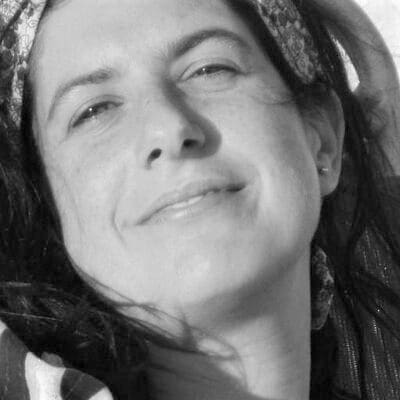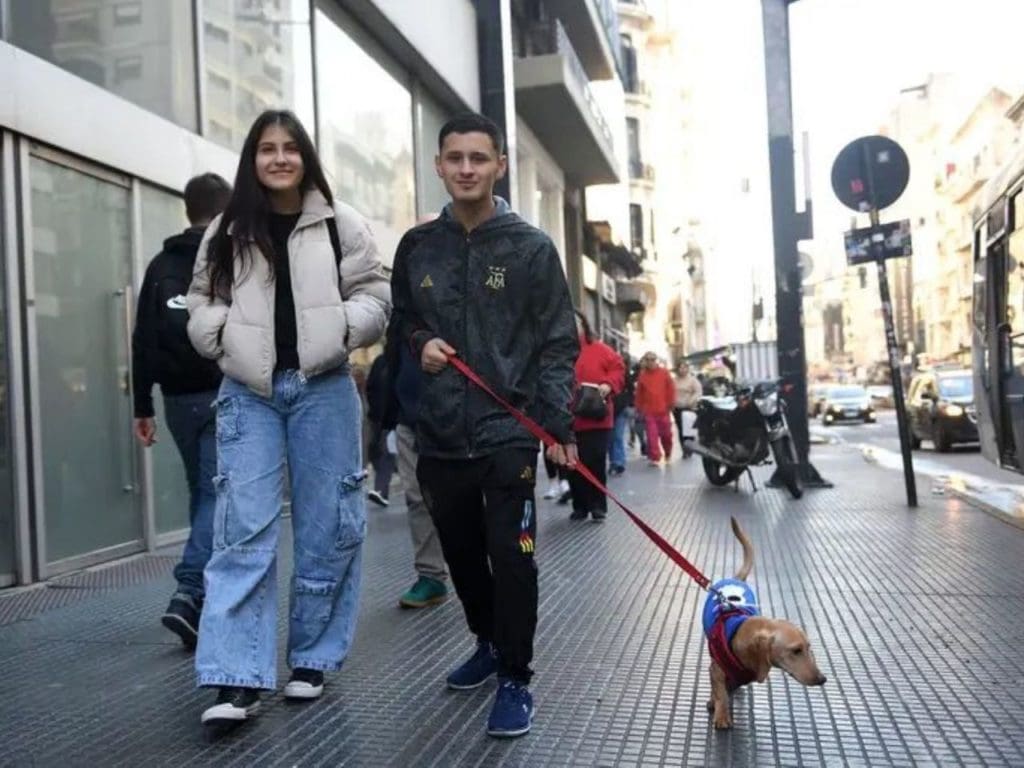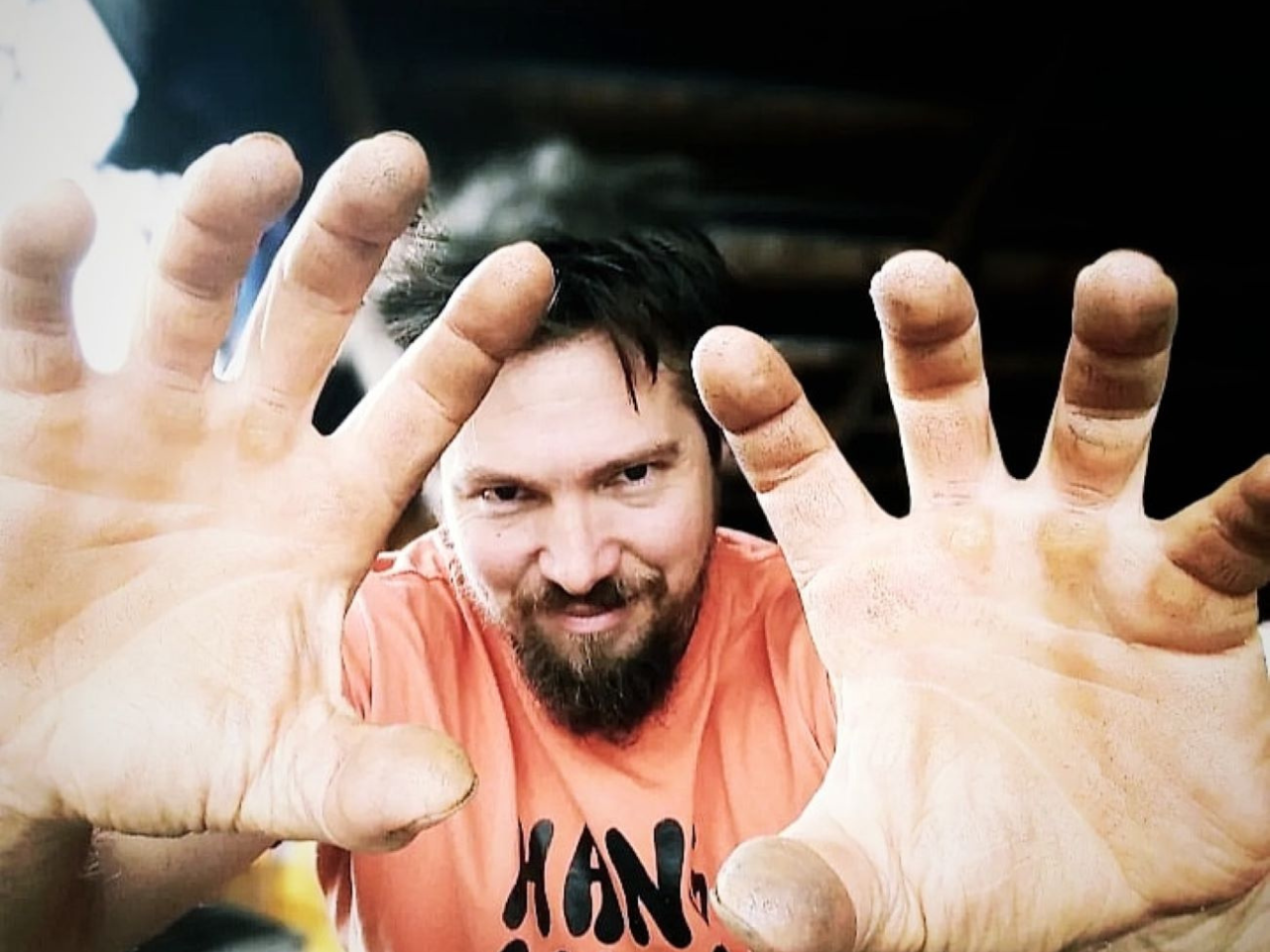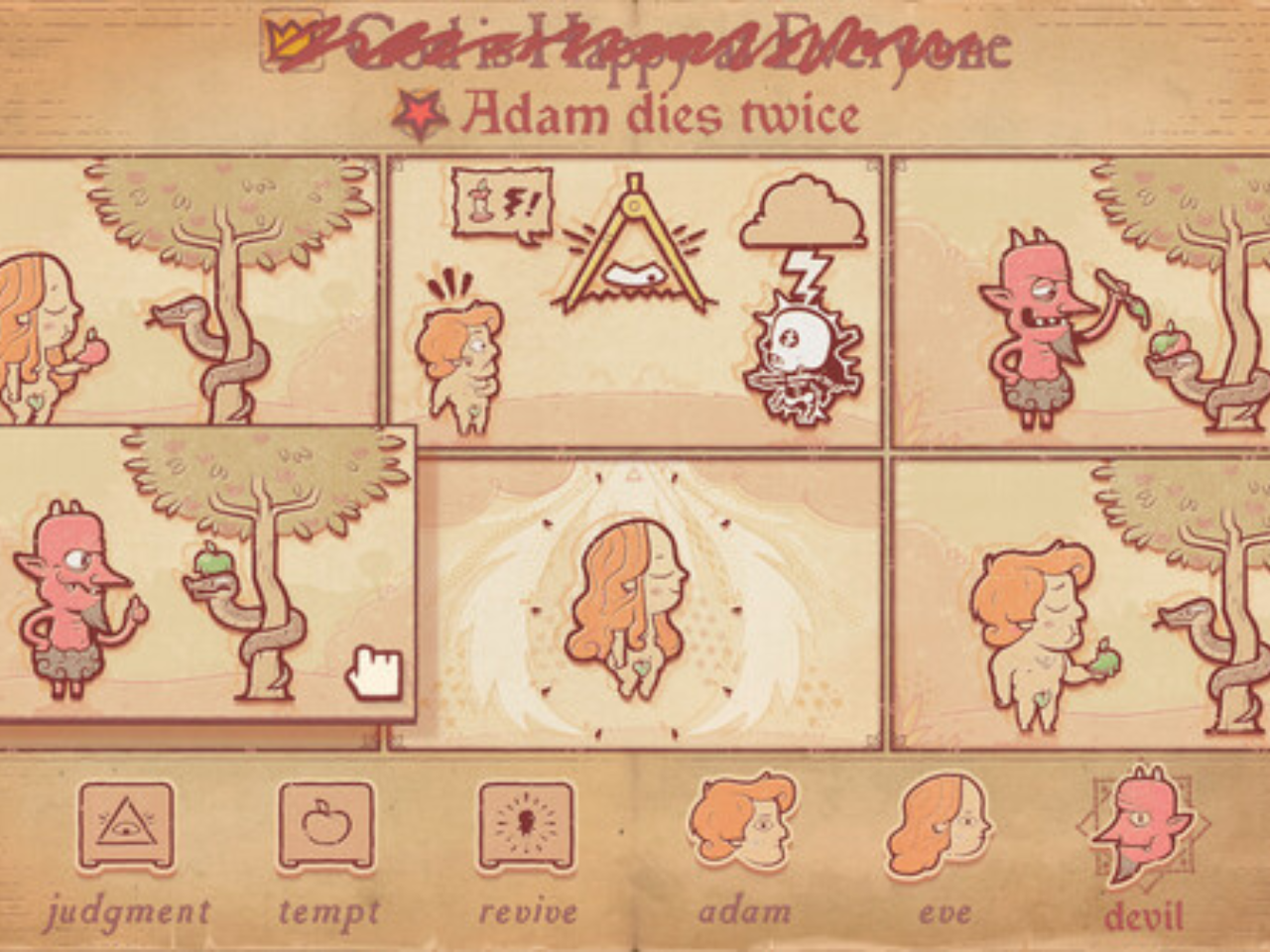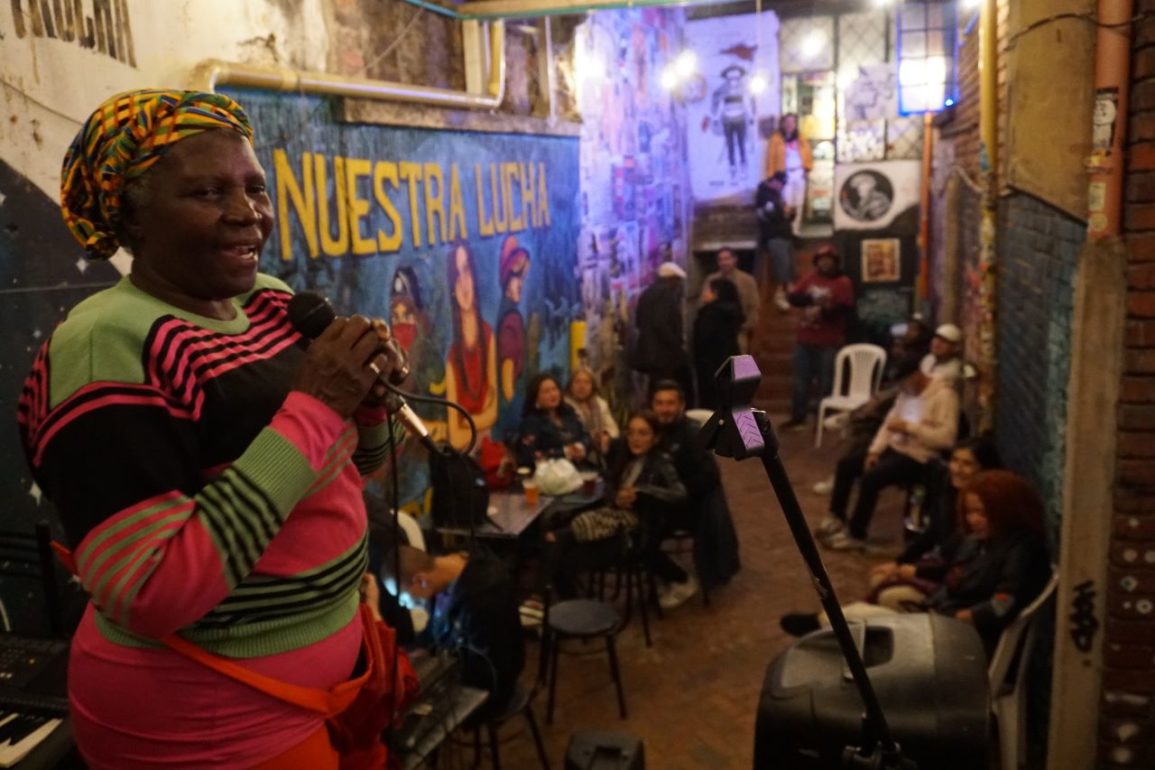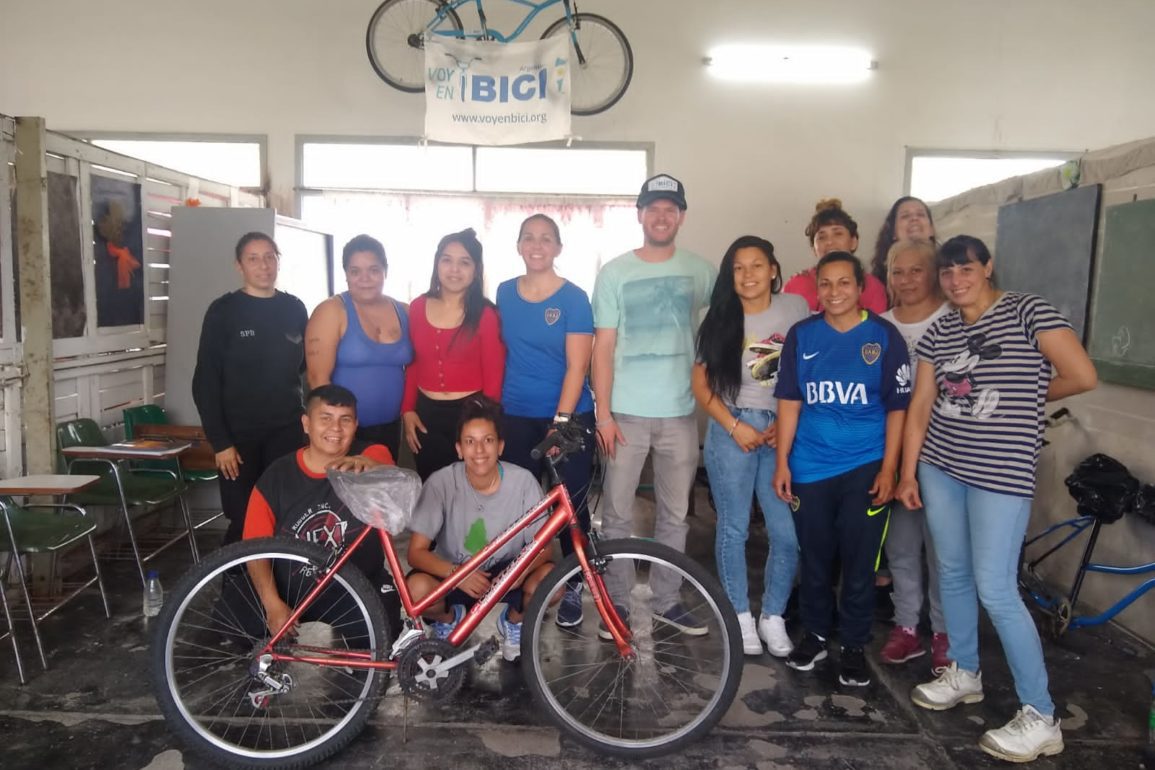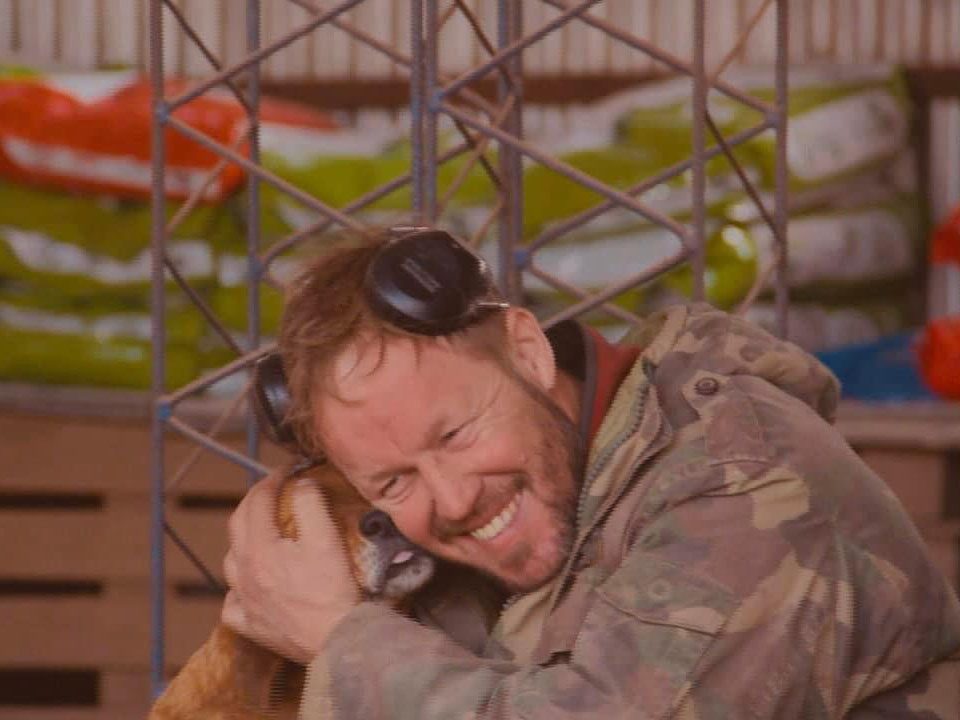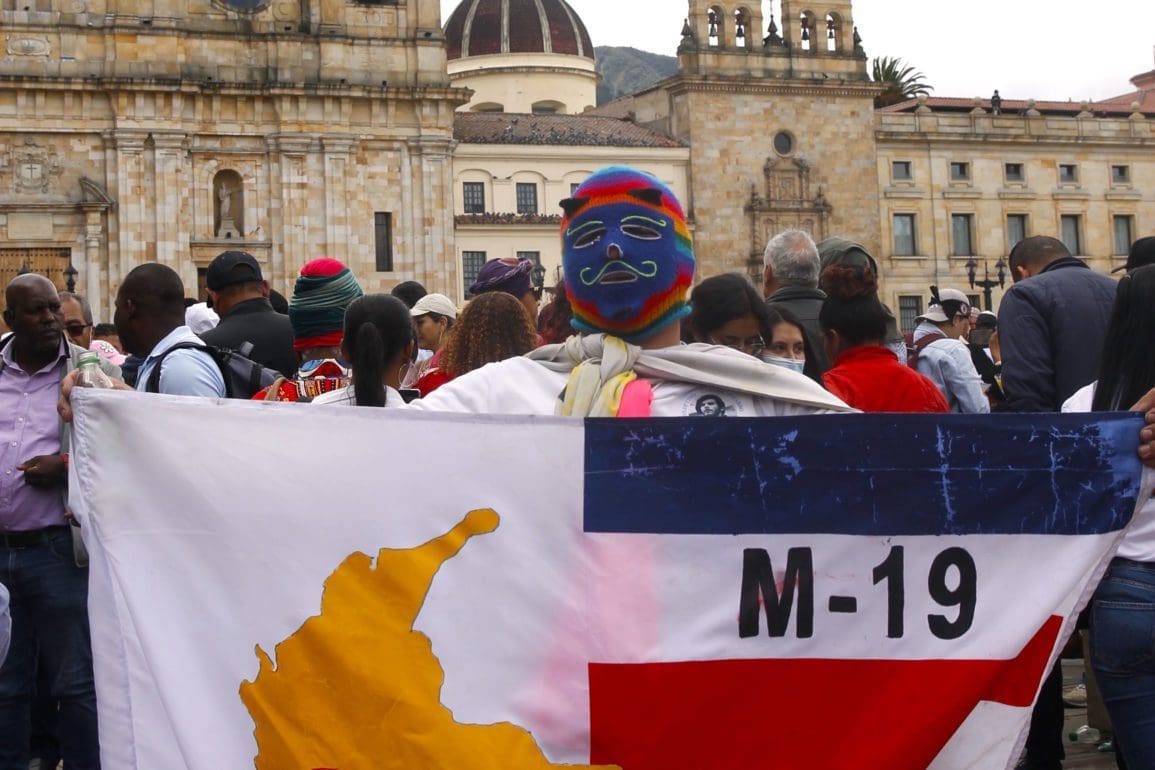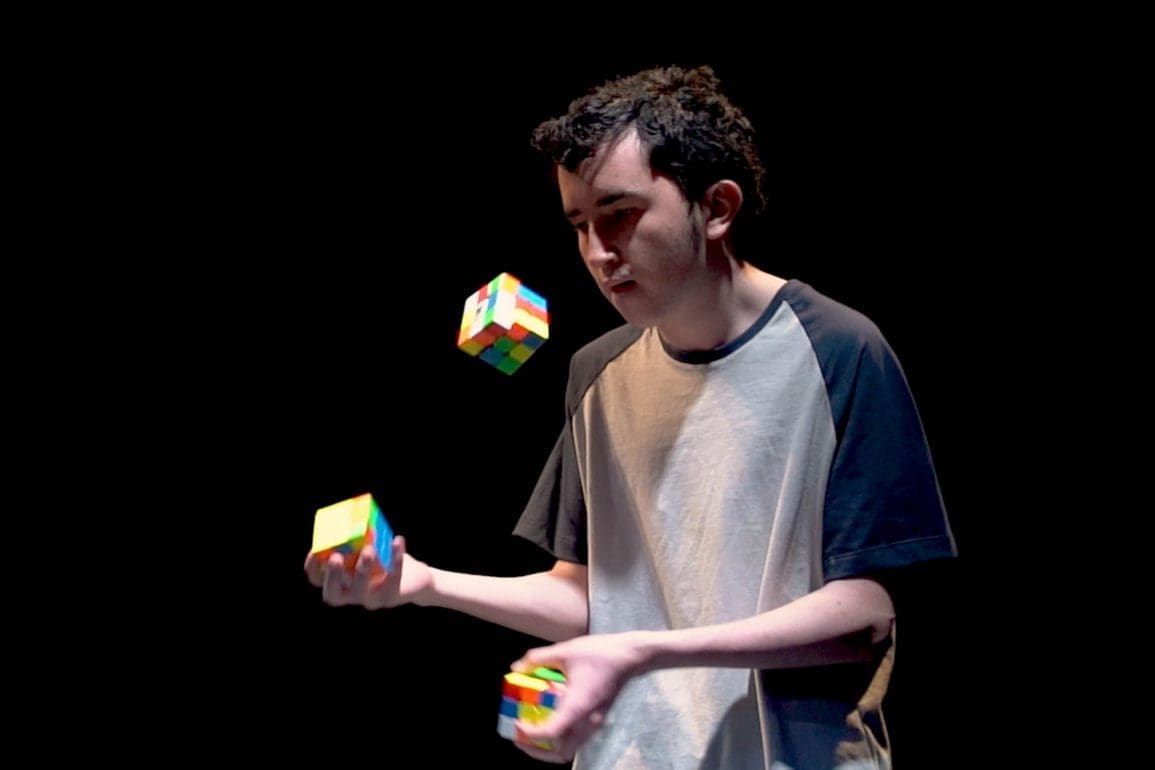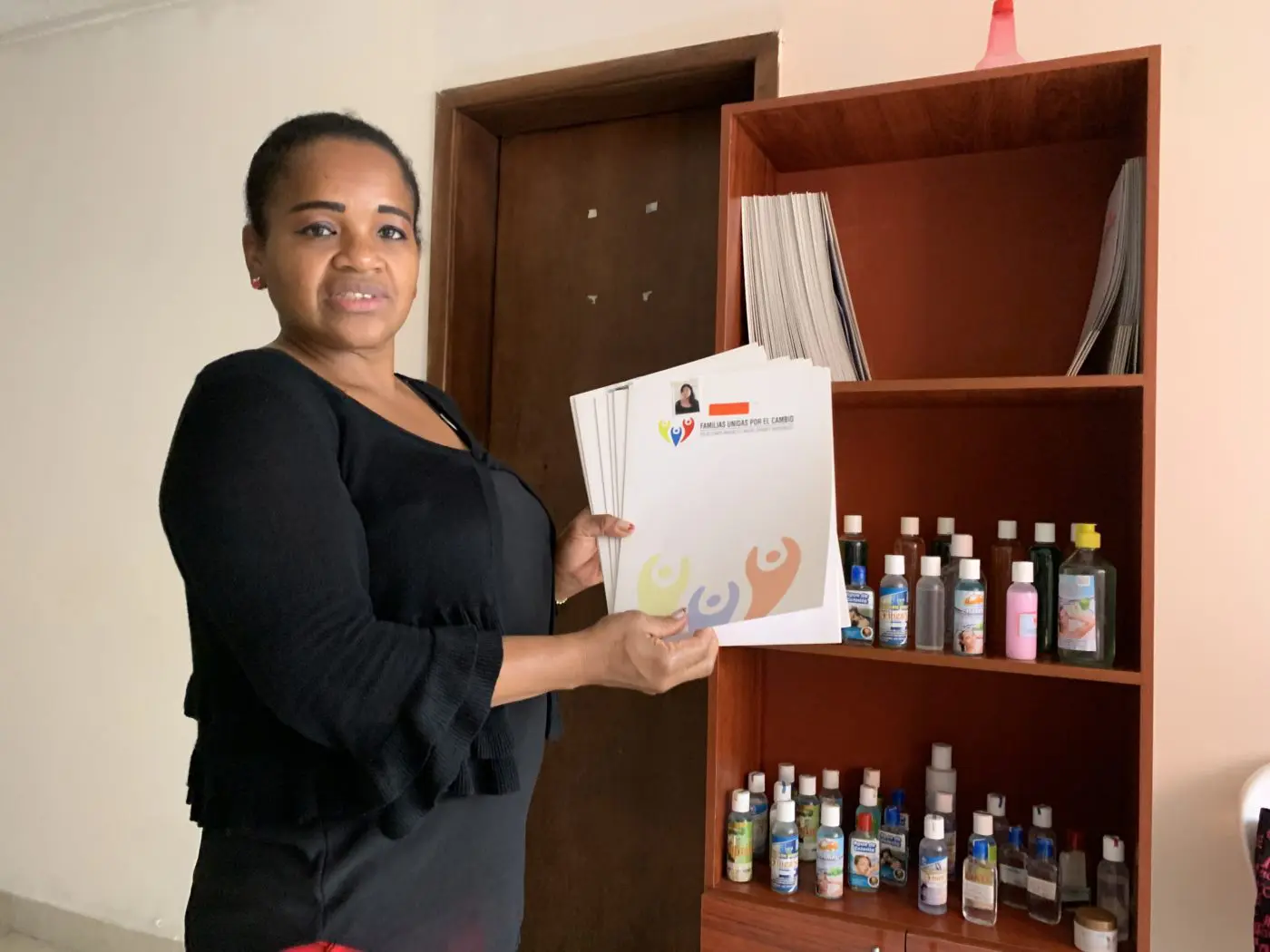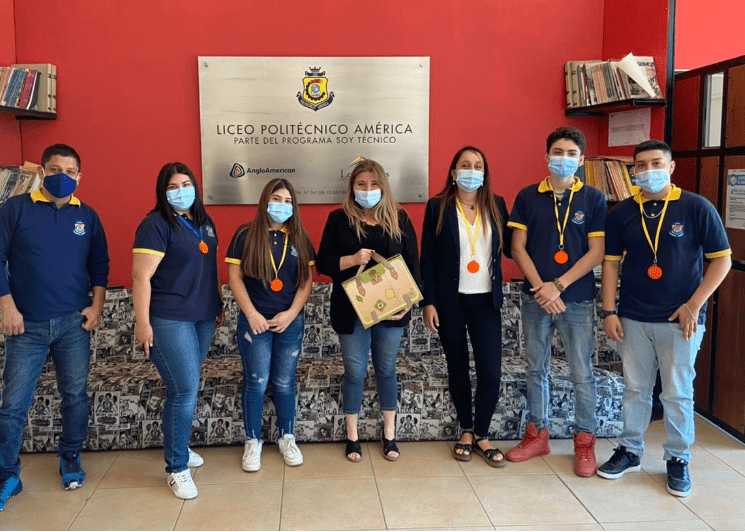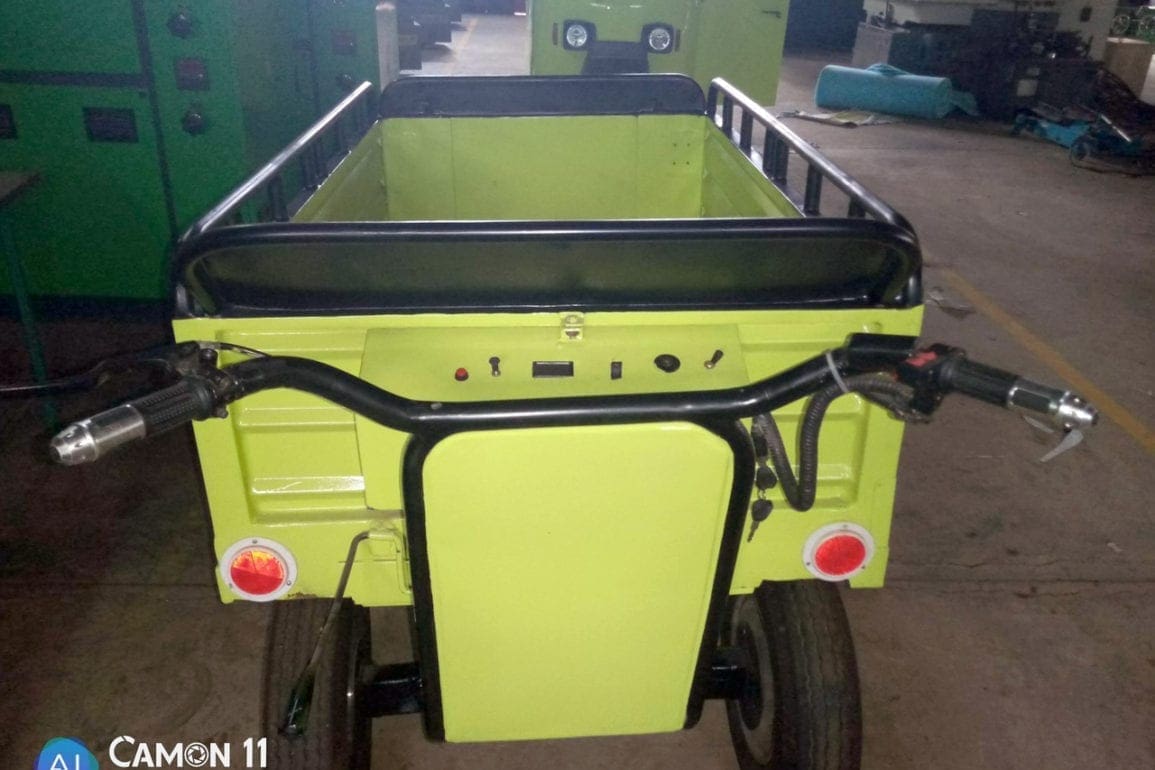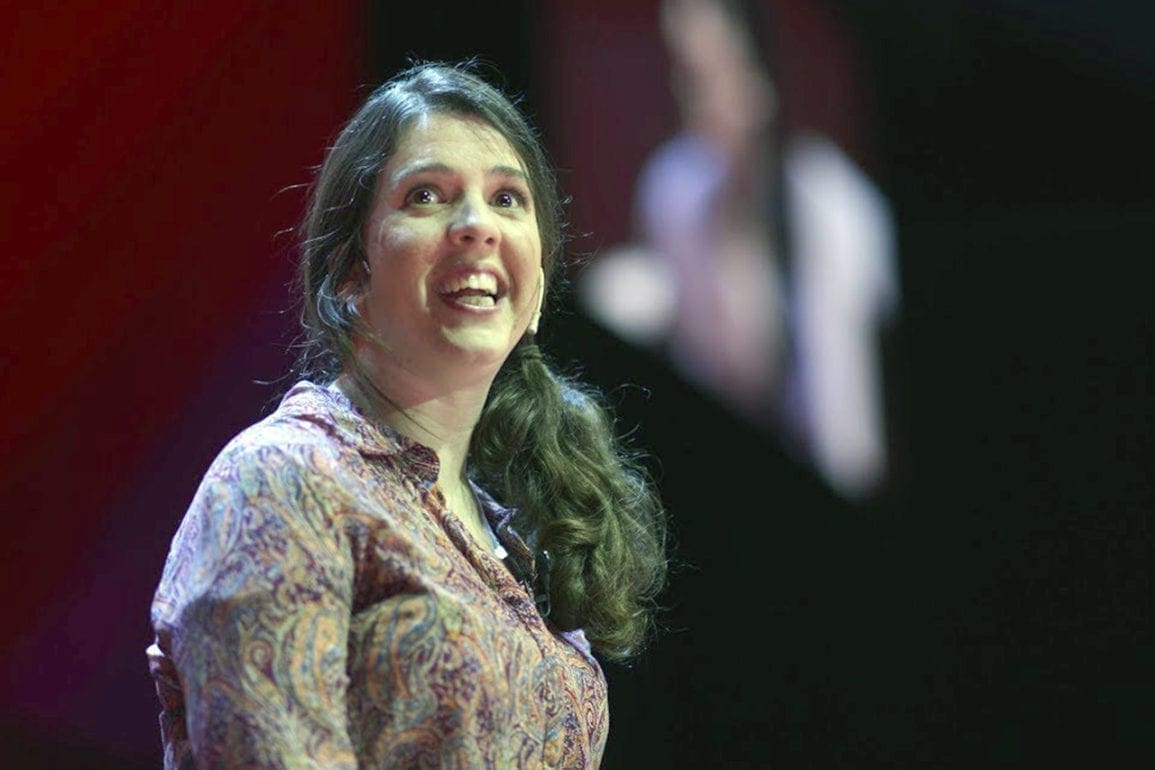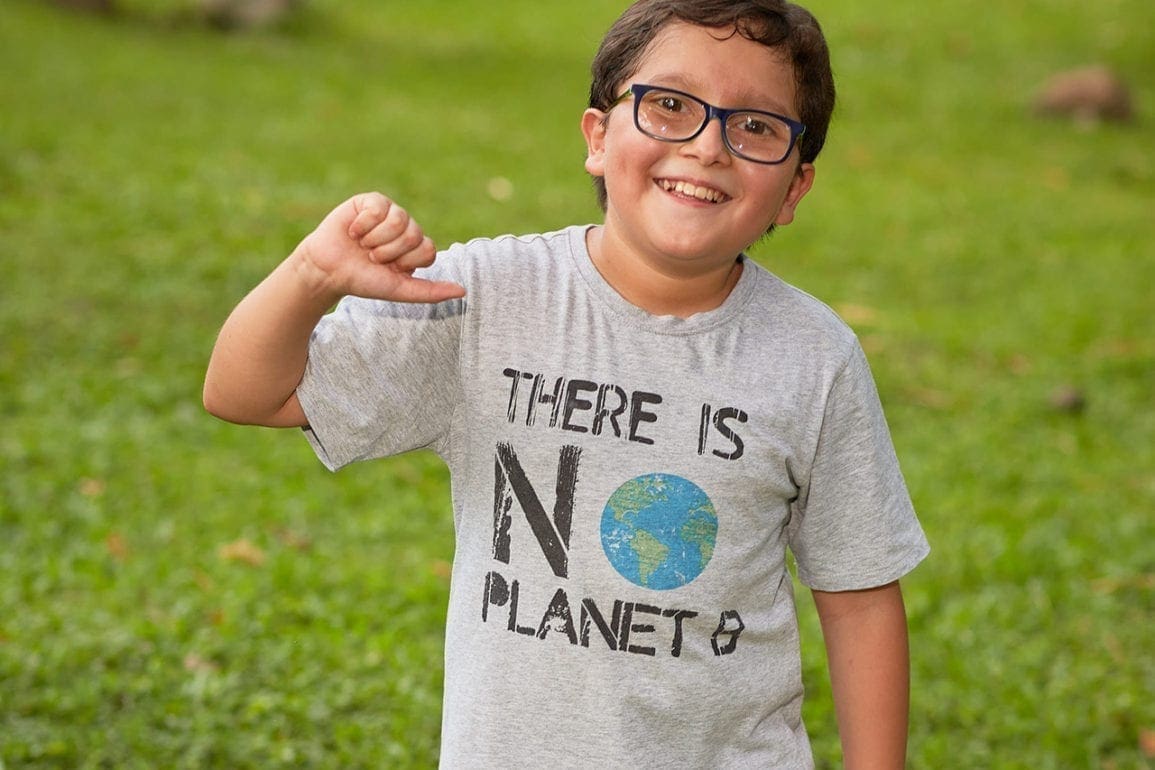Unhoused individuals become focus of 20-year-old Emy’s life work after encountering Facu, a young man her age living on the streets
I sat down beside him, wrapped him in the blanket I carried, and hugged him tightly. When he began to cry, I dried his tears, as I handed him food to eat. “I want to know your story,” I said gently.
- 11 months ago
September 10, 2023
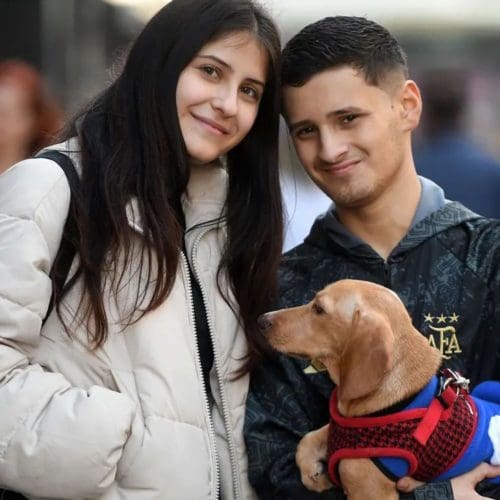
BUENOS AIRES, Argentina ꟷ The number of unhoused people living in the streets of my city continues to escalate as we battle a historic economic crisis. The more aware I become of the problem; I cannot wipe it from my mind.
I feel a deep well of kindness for the unhoused people all around me. So, I began walking the streets each night with hot tea to hand out. In the winter, I carried a coat to give away; and in the summer, something cool to sleep under. Soon, I began watching videos of people helping the unhoused, hoping to start a project of my own.
Then, one day, as I strolled through the city and the cold air nipped at me, shock overtook my body. I saw a young man my age lying on the ground trying to wrap up in a dog’s blanket. His coat barely covered him. “How can this be,” my mind cried. Impulsively, I sat down next to him. As we talked, I told Facu, “I’m coming back tomorrow and I’m bringing you food and something for shelter.”
Read more stories from Visionaries doing amazing things around the globe at Orato World Media.
A simple video reaches a half million views and unhoused youth finds a home
As soon as I left, I called my mother. We started conducting tours of the unhoused communities around us. As I walked amongst the people carrying food and coats, I found Facu in the same place I left him. He waited patiently for me, just as I instructed. It moved me to see him still there and I immediately began to cry.
I sat down beside him, wrapped him in the blanket I carried, and hugged him tightly. When he began to cry, I dried his tears, as I handed him food to eat. “I want to know your story,” I said gently. Facu told me the house where he and his family lived burned down in January. Being left out on the streets, he felt incredibly worried. He wanted out but had nowhere to go.
Though I had no experience, I suggested we make a video telling his story and spread it all over. I felt shocked when, after just two days, the video reached a half million views. The representatives from a television channel contacted me and with their help, we raised one million pesos. We bought Facu a coat and then paid three months’ rent for a small room where he could live, safe from the cold and life on the streets.
After such a big win, it felt incredibly hard to return to our tour through the streets of Buenos Aires. Sitting in my car with my mom after we left Facu, we barely spoke. You could cut the air with a knife. Then, suddenly, I looked at her and we both started crying and laughing at the same time. Never did I imagine our efforts would lead to this young man to so much help.
Making authentic connections with unhoused people forges the pathway for helping
Soon, the people who followed me online recommended I meet 23-year-old Ari. They sent me his profile and I contacted him immediately. I told him about the last experience and suggested we meet. I repeated the same exact process and, once again, the television reps reached out. This time, we raised two million pesos and Ari paid for five months’ rent. Job opportunities suddenly appeared, and his life took a 360-degree turn.
Touring through the streets I meet all kinds of people. Some say, “No, do not give me anything. I’m not homeless.” I know they are but I go along because they feel afraid or ashamed. Others break your heart with stories of being left alone since childhood and never able to get ahead. I see more and more families in vulnerable situations.
People show up who have never lived in the streets before but the Pandemic and then the economic crisis left them spinning in a tailwind. I meet people who cannot pay rent on a house or a room and have to choose between that or feeding their children. Anytime I go out, I sit down and talk to people; I put myself beside them. Before returning home, I spend as much time as I can. “This could be me,” I always think. “I need to understand what it is like to live in their shoes.”
Handing out a few pesos, I encounter some people who shine with hope at the possibility of having help, and others who feel ashamed by it. Justing saying hello is not enough to connect with people. In order to help, you must create connections. I do that through eye contact, sitting, and talking. You think it’s irrelevant but it becomes the pathway to making a difference.
We need more people out here helping the unhoused
The last person I helped, named Martín, sat in a broken wheelchair. He could barely move. As I approached him, I looked him in the eyes and asked, “When was the last time someone hugged you?” He stared at me, holding my glance for a moment before tears filled his own eyes. “People don’t even see us,” he said, quietly. “They ignore us or despise us. They look us over from top to bottom. Others pass by as if you are nothing.” Again, I asked him, almost crying, “When was the last time someone hugged you, Martín?”
He pondered my question for a moment before I took him in my arms. “Martín, today,” I said as I held him in my embrace. He cried inconsolably as I cradled him. Something so simple can mean so much. After that, we got Martín a new wheelchair and thanks to a couple doctors, he received a prosthesis for his leg.
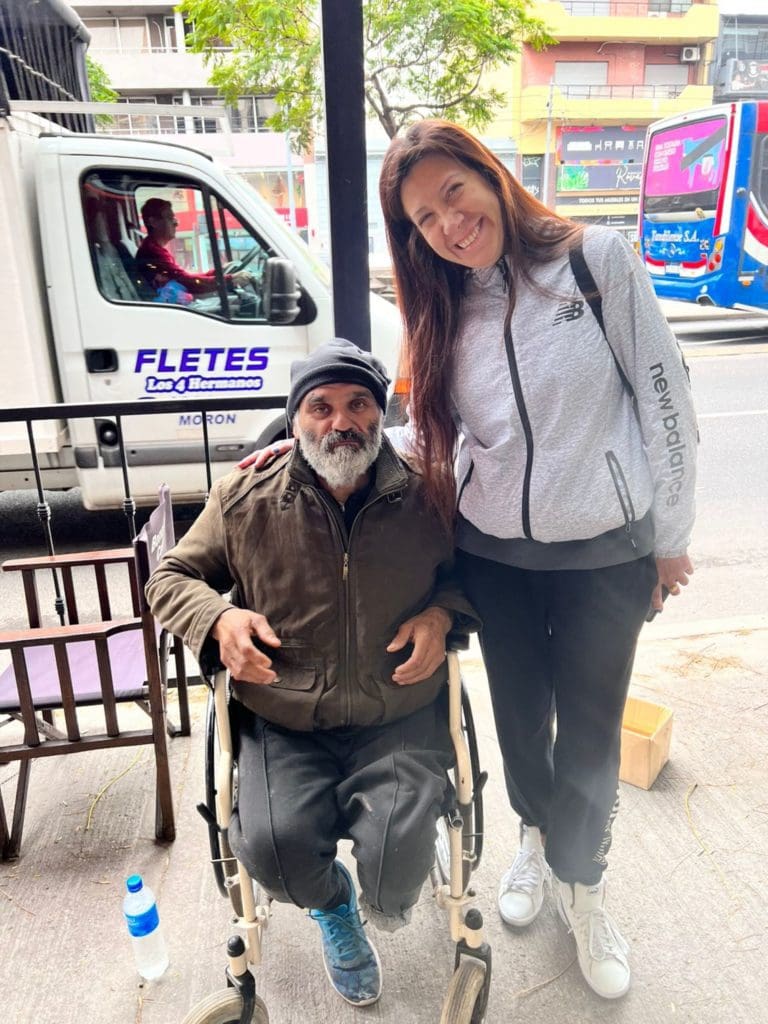
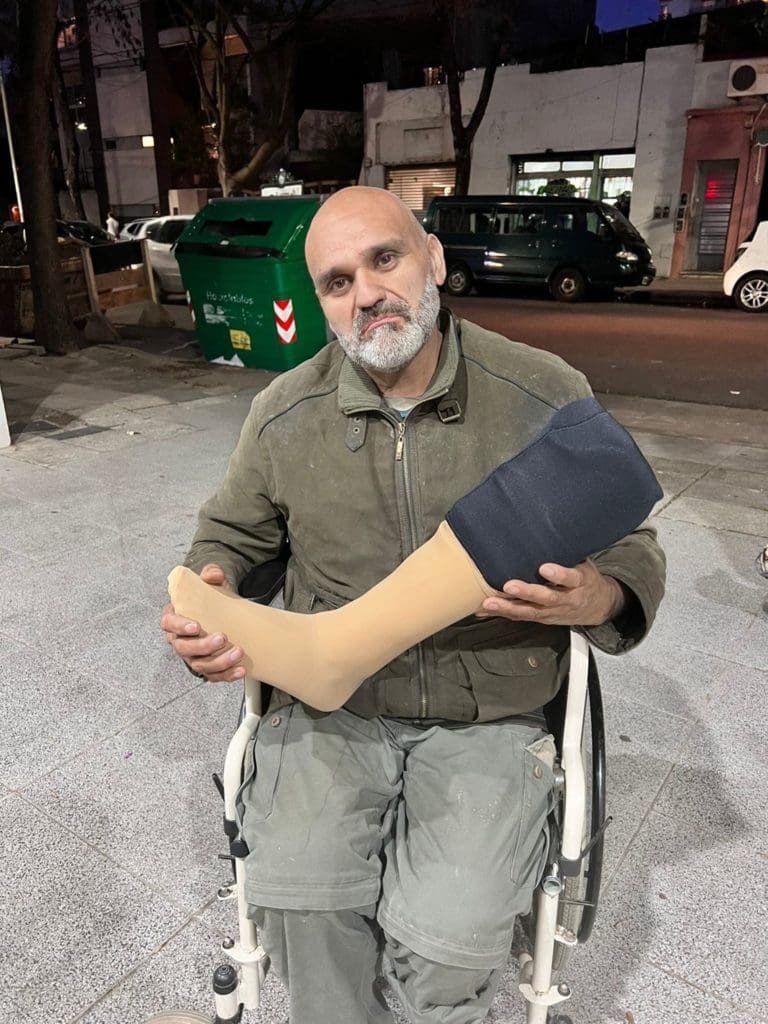
The tours bring me great joy but, honestly, they also scare me. Getting close to people can be complex. I start with a hello, then sit down next to them. I ask, “Can I help you?” Asking that question usually changes their demeanor and how things play out. When you offer help, you watch people’s faces change.
A little hello from the heart can activate a state of joy in someone. It can illuminate the darkness in which they live. My dream is to build an even bigger network where people can work together to improve this situation for those who suffer and optimize their quality of life.
I see it like piecing together a chain. The more people who come to help, the more food and clothing can reach those in need. So, through my project, I travel the streets. I carry hot drinks in thermoses and deliver food and shelter. New surprises emerge every day and this job exists 24 hours a day, seven days a week.
